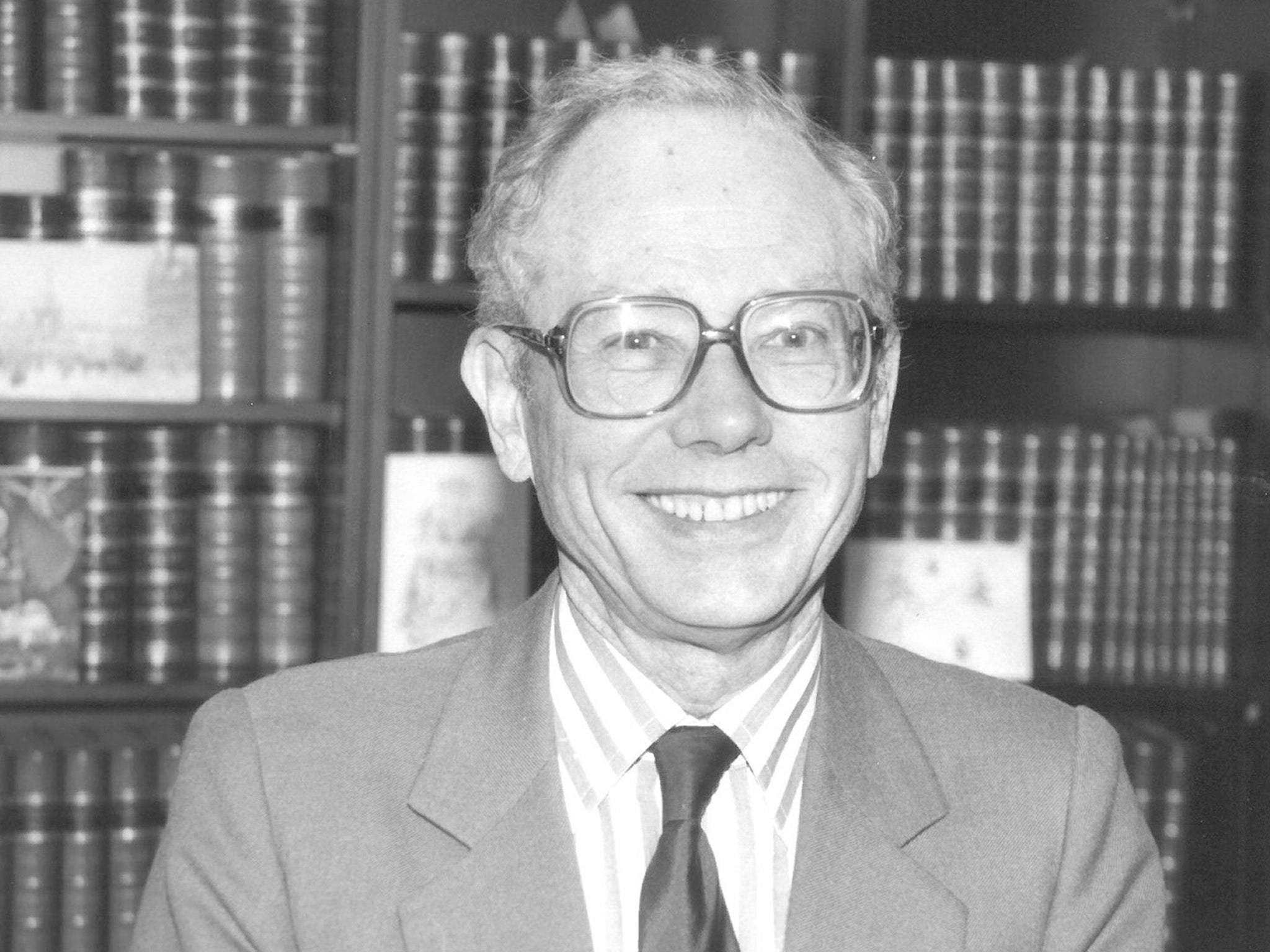Robert Blyth: Journalist who edited The Pharmaceutical Journal at a time of great changes for the industry it covered
As an editor he was a stickler for accuracy and would have been incensed by sloppy subbing - his energy was seemingly inexhaustible

Editing a professional journal is not the mundane option for a journalistic career that some might think: the life and work of a journal represent a microcosm of the wider world. Robert Blyth, who edited The Pharmaceutical Journal (PJ) from 1961 to 1986, and has died at the age of 93, saw his share of controversy and dispute as he piloted the PJ every week for 25 years.
The journal covered the ethical, legal and educational aspects of pharmacy’s diverse activities; it was also the profession’s main news medium. Early in his time at the journal, and an example of the political pressures pharmacy was facing, the Royal Pharmaceutical Society (until 2010 the pharmacists’ statutory governing body) was faced by what it saw as a threat to small independent pharmacies by a powerful chain of chemist shops that wished to extend some of its commercial activities.
The Society organised a meeting at which a motion to oppose such a development was to be held. Such strength of feeling was aroused among pharmacists that the Albert Hall was hired to accommodate those wishing to attend. This vast space proved not large enough to hold all the thousands who travelled to London – some by special train – from all parts of the country.
It was not the usual sort of occurrence for a rather staid profession but Blyth revelled in helping to promote and to report the event in the PJ. The Society’s members won the debate but lost the legal case that ensued. Blyth’s resulting leading article was fiercely critical of that outcome and made him some enemies in consequence. If that was a unique event, the tensions and stresses concomitant with the editor’s role were not untypical of life on such publications.
The PJ was the official journal of the Royal Pharmaceutical Society and thus ultimately subject to the authority of an elected council. But it had enjoyed editorial freedom since its foundation in 1841. Not infrequently, however, some council members disagreed with one decision or another of the editor. Blyth was a tough nut and astute politically; he was always able to keep the majority of council on board.
Blyth took over an old fashioned journal and modernised its style and content. He expanded the PJ’s coverage to deal with the rapid expansion of pharmacy in the 1960s and ’70s. He introduced articles and features to cover the specific interests of the different sections of pharmacy. Community pharmacists – those running chemist shops – who faced increasing commercial pressure; clinical pharmacists – those engaged in hospitals – were expanding their role but faced (as ever) with financial constraints from government.
Pharmacists involved with the manufacture of medicines, with the industry’s own powerful agenda, made the third element in a triumvirate of interests: all were reported and commented on. His exhaustive coverage of the parliamentary debates and interprofessional discussions concerning the radical reorganisation of legislation in the 1960s that lead to the Medicines Act 1968 was typical of his thorough approach. His leading articles were consistently well researched, thought-provoking and incisive.
When he was awarded the Pharmaceutical Society’s Gold Medal, its highest award, shortly before his retirement, the citation said of Blyth: “The profession should be truly grateful that such a man has been in the chair as the editor of The Pharmaceutical Journal for over a quarter of a century... His integrity has never been questioned nor has his willingness to face and comment upon difficult questions.” He was made MBE for his services to pharmacy in 1987.
Robert Blyth was among that generation whose early career was delayed by service in the 1939-1945 war, in which he joined the Royal Artillery. After demobilisation he studied at Heriot-Watt school of pharmacy, qualifying as a pharmacist in 1949. But keen on journalism, after two years in a retail pharmacy he obtained a post as a sub-editor on Chemist and Druggist, the main competitor to the PJ. He was invited to join the PJ in 1957 as assistant editor and took over as editor in 1961.
As an editor he was a stickler for accuracy and would have been incensed by sloppy subbing. He got on well with his staff and earned their loyalty, and often friendship. His energy was seemingly inexhaustible. Press day in those days of hot metal printing would involve a long stint at the printer’s. After putting the paper to bed the editorial staff, led by Blyth, would adjourn to relax in a nearby pub. Next day the editor would turn up at the office first thing, immaculately dressed and raring to go.
Twenty-five years after he retired, although now frail, he hosted, with his caring daughter, a lunch for some of the journalists, themselves mostly retired, whose own careers had thrived under his leadership. It was a most happy occasion.
Robert Blyth, editor and pharmacist: born Falkirk 21 October 1921; MBE 1987; married 1951 Margaret McLoughlin (died 2004; one daughter); died Milton Keynes 27 November 2014.
Subscribe to Independent Premium to bookmark this article
Want to bookmark your favourite articles and stories to read or reference later? Start your Independent Premium subscription today.

Join our commenting forum
Join thought-provoking conversations, follow other Independent readers and see their replies